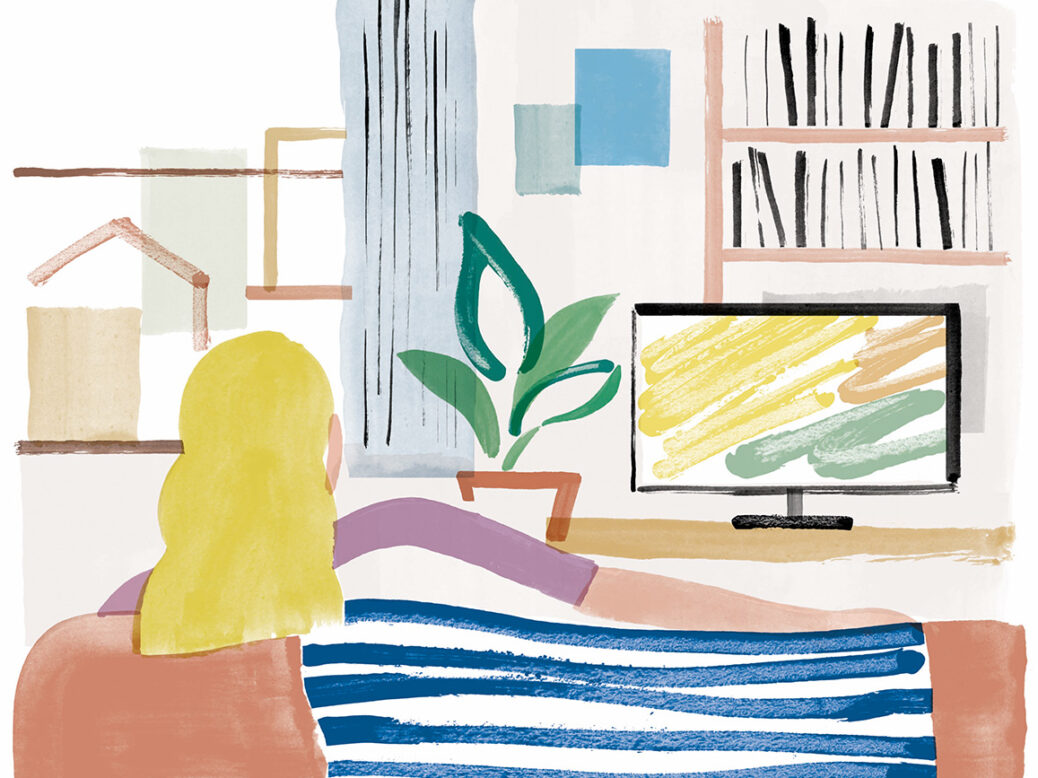
It did not begin with an episode of The Great Pottery Throw Down, but I can’t pretend that wasn’t the trigger. Watching contestants plunge their hands into wet clay, conjuring up beautiful shapes from blobs with the aid of a magic spinning wheel, reignited memories of being at school. There was a single pottery wheel in the corner of the art classroom, for use by A-level students only. I was useless at art. I couldn’t draw; I hated the disconnect between the fantastical images in my head and the disappointing scribbles on the page whenever I tried to translate them. Frustrated and talentless, I’d spend lessons staring longingly at that wheel, wondering if my artistic ambitions would be better realised in three dimensions rather than two.
But the contestants on Throw Down hadn’t all started at school. For 18 years I’d wondered what it would feel like to work with clay – was it something I could learn now? It felt like a stupid idea. I’ve never been good with my hands; my creativity has always been confined to writing. Friends learned to sketch, paint, crochet and embroider during the lockdown months – not me. My one attempt at knitting a scarf went so disastrously that I gave up after a week, having added so many accidental stitches that it was twice as wide at the top than the bottom. Ceramics was Serious Art, for Serious Artists. I wasn’t good enough to try.
Two years and a house move later, I changed my mind, thanks to the serendipitous discovery of a pottery studio nearby. It advertised two-hour taster sessions for beginners. “I’d be rubbish,” I told my husband when I tentatively raised the subject. I was expecting him to laugh and remind me of the scarf debacle. He didn’t. “So?” he asked. “What’s wrong with being rubbish?”
It was an odd thought. There is so much in my life that has the power to make me feel deeply inadequate, from work to step-parenting to fitness. Sometimes these perceived inadequacies matter; more often they matter less than I think in the moment. But the idea of it being explicitly OK to be bad at something? That was unthinkable. What would it be like to allow myself to be rubbish, to say from the beginning I would inevitably make a mess of it? To give myself permission to fail? I booked the class. At the very least, I thought, it would mean a break from doomscrolling.
It would be narratively satisfying to say I discovered a talent for pottery. Reader, I did not. Throwing pots is even harder than it looks. Clay has an agenda of its own, a twisting inner vitality that defies attempts to mould it. The clay put me in mind of Puck, or Loki, trickster spirits outwitting the unwary. Feeling this living force spiralling under my fingertips as I braced my whole weight against the wheel, I learned about “centring” and “opening”. My first attempt collapsed, rescued only when the instructor cut off the top and reshaped it into a shallow bowl. My second was hideously deformed. My third spun off the wheel entirely. I squashed it with a squelch. Any clay we didn’t use would be recycled; here, there was no waste, no consequences for failure.
In a week’s time, I’ll get to see the results, once the studio has fired them. My expectations are low – if I end up with a pot for toothbrushes and a bowl to put paperclips in, I’ll be happy. But that isn’t the point. It felt so liberating – both the endless possibilities of all those secret shapes hidden in a ball of clay just waiting to be released, and the lack of pressure. I could be rubbish at this. I could start again. I could just play, close my eyes and pay attention to this alien, elemental sensation. I could exist in the moment, for once, free from the constant anxiety of letting someone – or myself – down.
The studio runs five-week courses for beginners. Maybe one session was enough: I tried, I had fun, I can let go of a fantasy I’ve had since school. But part of me wants to find out if I can learn to tame the clay spirits, to tease out their power, and shape them into submission. Maybe I would get better with practice. And maybe I could practise not caring if I get better.
[See also: I’m in pain, and the bailiffs are back]
This article appears in the 20 Nov 2024 issue of the New Statesman, Combat Zone





